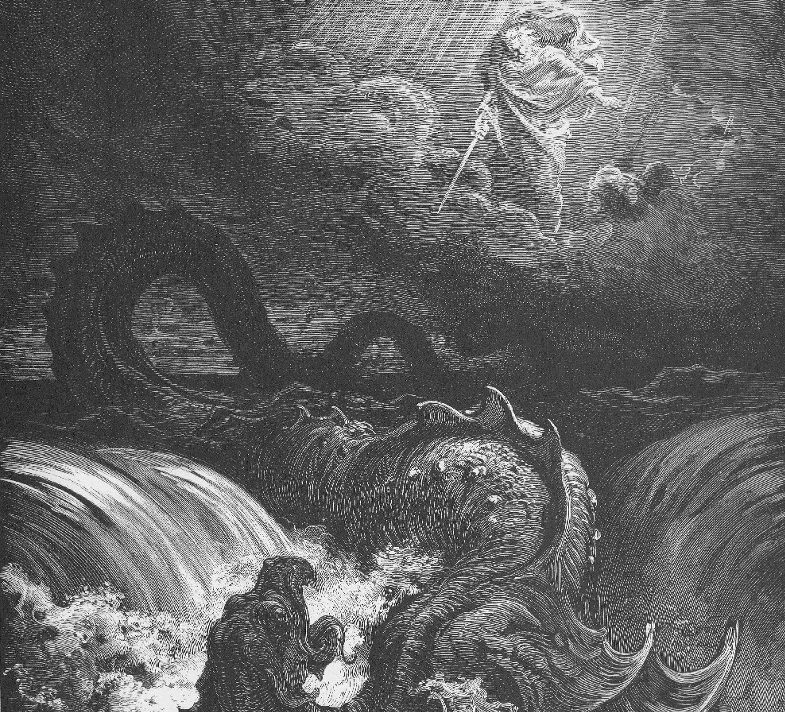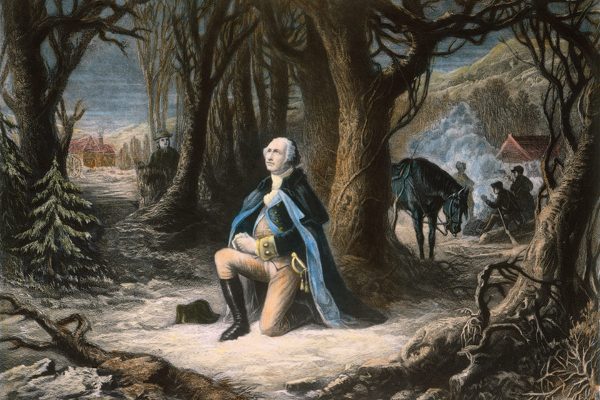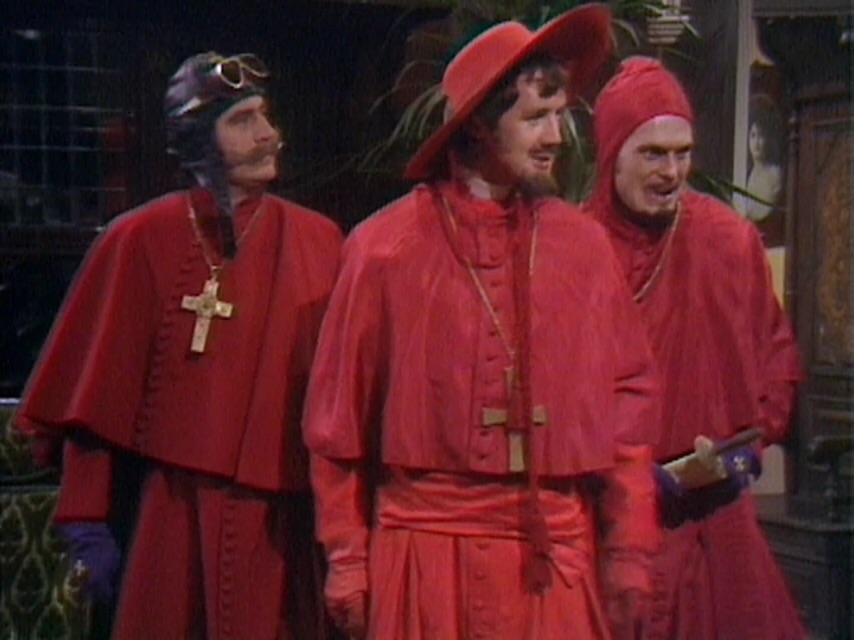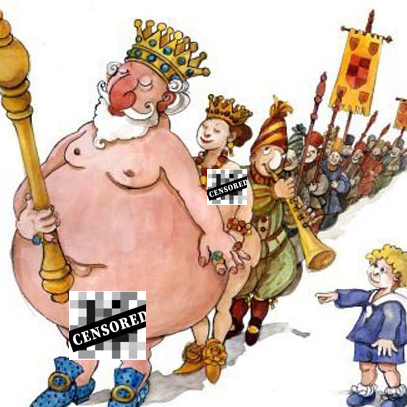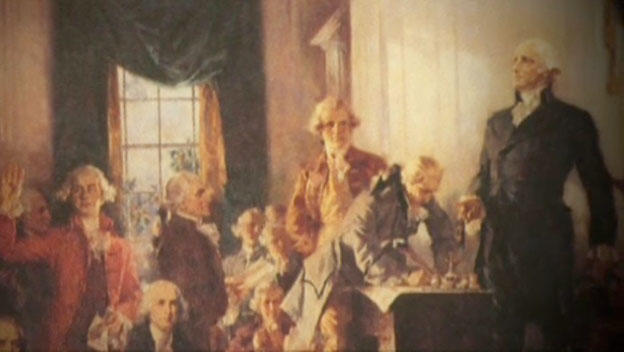Digital conditions, not competing intellectuals, will make it so.
Law Without Logos?

Only a dark theology can baptize the administrative state.
Centuries before the term “administrative state” was ever coined, the scholastic philosophers of early medieval Christendom formulated a theological distinction between potentia Dei absoluta and potentia Dei ordinata. A principle often associated with William of Ockham—the somewhat obscure philosopher who Richard Weaver taught a generation of conservatives to detest—this absoluta/ordinata distinction posited a break between God’s absolute power (whatever might be logically possible for an infinitely great entity to accomplish) and God’s ordered power (the manner in which He freely chooses to use His creative energies).
This was a sharp departure from the prior tradition: for hundreds of years, Christian philosophers had insisted on the unity of God’s identity and His actions. On the earlier view, since God’s essential character was necessarily revealed in His creative handiwork, principles of His natural law could be deduced through careful observation and reflection.
But the absoluta/ordinata distinction drove a conceptual wedge between God’s nature and actions. The distinction defined the divine nature as, essentially, unbounded and infinite power: the power to freely choose to do whatever did not entail a logical contradiction. The Creator of heaven and earth was no longer truly disclosed in the workings of the natural order, but rather transformed into an inscrutable reservoir of sovereign might, a deity who just happened to have created this particular world rather than another.
To all but the most engaged students of medieval philosophy, all of this will sound frightfully obscure. But crucially, the Ockhamist turn changed the nature of theology as a discipline, moving theological reflection away from contemplation of a sacramentally charged cosmos and toward a quest to live properly in the face of Absolute Power. (The quest to placate that Power was so onerous that it drove a young German monk named Martin Luther to his knees in terror.) No longer could the faithful reliably turn to the “book of nature” to learn true things about God’s character; they were simply required to submit and obey.
While the phrase never expressly appears on the page, this potentia Dei absoluta looms like a brooding omnipresence in the sky over Adrian Vermeule’s whole scholarly project, from his writings on administrative law to his latter-day turn toward “common-good constitutionalism.” Perhaps one of the deepest misunderstandings of Vermeule’s recent Atlantic article is that it somehow represents the overexcited theorizing of a recent Catholic convert. Nothing could be further from the truth: it is the logical terminus of a theoretical trajectory that has played out across his entire academic career. And more importantly, it is the product of a deeply pessimistic metaphysical vision of both God and man.
Deliberative Aporia
Academically speaking, Vermeule is probably best known for making a substantive argument for the good of unfettered executive authority. In his 2010 book The Executive Unbound (coauthored with Eric Posner), Vermeule argued that
…normative theorists should cease bemoaning the decline of Madisonianism and instead make their peace with the new political order. The center of gravity has shifted to the executive, which both makes policy and administers it, subject to weak constraints imposed by Congress, the judiciary, and the states. It is pointless to bewail these developments, and futile to argue that Madisonian structures should be reinvigorated.
When disaster strikes, “only the executive is institutionally capable of reacting with sufficient speed and force as the rate of change in the policy environment increases.”
For Vermeule and Posner, it is of little moment that the executive may sometimes venture beyond the prescribed limits of its power. Where the sovereign is rightful, formal rules may simply fall away when circumstances dictate: “legality and legitimacy diverge in times of crisis, and legitimacy prevails.” Note that this distinction between legitimacy and legality is, in essence, a distinction between potentia absoluta (power to act in any way) and potentia ordinata (power as rule-bound). That distinction, as will be seen, has crucial ramifications.
But there are plenty of right-of-center thinkers willing to defend an energetic executive—John Yoo springs to mind—who do not share Vermeule’s affinity for the administrative state writ large, and are content to justify a robust presidency on the originalist theoretical grounds that Vermeule broadly rejects. Something more is at work in Vermeule’s approach to administrative law—and in particular, his dismissive attitude toward conservative critics of the administrative state, which he and Cass Sunstein have labeled the “New Coke” movement.
Specifically, the theoretical problem posed by legal interpretation has been a pervasive theme of Vermeule’s scholarly work from its earliest days. While an assistant professor at the University of Chicago, Vermeule took up the subject of statutory interpretation in a 2000 NYU Law Review article. Like Karl Llewellyn, who famously decried the seemingly arbitrary deployment of “canons of statutory interpretation,” Vermeule was struck by the fact that judges must make interpretive decisions—including decisions about which tools to use—under imperfect conditions. “Courts must choose interpretive doctrines on largely empirical grounds, under conditions of severe empirical uncertainty, often without the luxury of postponing their decisions,” he argued. “It is difficult to say how courts should proceed under these conditions.”
No doubt it is difficult—hence, the ongoing development of intricate schools of thought within the broadly textualist movement, such as the corpus linguistics movement.
Vermeule, however, did not conclude from this insight that more theoretical work needed to be done to justify the use of certain canons over others. Quite the opposite: what was necessary was to abandon the task of theoretical justification altogether. “The argument for picking canons suggests that choosing correctly between competing default rules probably would be counterproductive. It is more important that judges select one answer and apply it consistently over time than that they select the right answer”(emphasis added).
It is difficult to overstate the significance of this principle in Vermeule’s work, both then and now. Elevating consistency over fidelity surely reflects a deep skepticism about the possibility of interpretation qua interpretation—and thus, of “law” as conventionally understood. Better, rather, to eradicate any ambiguities through the modulation of perfect power.
It is this precise impulse that lies at the heart of Vermeule’s sharp debate with Columbia professor Philip Hamburger over the latter’s 2014 book Is Administrative Law Unlawful?. Where Hamburger’s volume stressed that modern administrative law has tended to collapse a government of ordered powers into the “absolute power” of the premodern monarch, Vermuele simply rejected “the tyrannophobia that bubbles unhealthily around the margins of popular culture” and mused that “all three branches, exercising their separated and specialized powers, have cooperated in setting up the current scheme of partially combined functions. Is this a betrayal of the separation of powers, or instead its offspring and fulfillment?”
That theory reached its most overt expression in Vermeule’s 2016 book Law’s Abnegation, which argued directly that the hidden fate of the law is indeed its own dissolution into the administrative state. “Law has leashed itself under the throne of the administrative state; and it has done so because the best internal understanding of the legal arguments, worked pure by virtue of a commitment to reasoned consistency, has indicated that it should.” Distinct branches of government, of course, may reach different—and inconsistent—interpretive conclusions. Ergo, administrators—not fickle and inexpert judges, or legislators given to vague generalities—must be the proper architects of a fully realized, fully consistent legal order.
In Vermeule’s vision, “law” admitting of the possibility of interpretation—that is, “law” as both Hamburger and ordinary laypeople understand the term—simply fades away. And this makes a certain degree of metaphysical sense: when law is conceived primarily under the aspect of sheer power (potentia Dei absoluta), rather than of reason or rational arrangement (Logos), the traditional forms of law—whether understood as written texts, or as natural orderings discernible by right reason—are at best superfluous and at worst impediments. The destiny of law-as-power is opaque bureaucracy.
At work here is a kind of jurisprudential Death of God theory, one that has passed from noting the difficulty of legal interpretation to asserting its utter pointlessness. For Death of God theologians, the destiny of Christianity—faith in the God who becomes human and dies—must be a total kenotic outpouring of the divine into the world, a self-emptying by which God gifts human beings a secular world of total freedom and subsequently departs the stage. Absent from this new world, of course, is any transcendental criterion against which the use of power may be judged.
Likewise, for Vermeule, law’s abnegation means that there can be no possibility of invoking a higher criterion of law—whether natural, legislative, or Constitutional—against the actions of the sacralized administrative state. The potentia Dei absoluta that the sovereign represents, after all, answers to nothing other than itself.
Despite the extremity of this reading of Vermuele’s work, it is hardly farfetched. In a 2019 address entitled “Bureaucracy and Mystery,” delivered before the Center for the Study of the Administrative State, Vermeule invited listeners to
consider what is by many measures the largest and oldest continuous bureaucracy in human history: the Catholic Church. Here we have institutional specialization raised to an art form; consider the Roman Curia, with its literally Baroque divisions and subdivisions. One might say that the genius of Catholicism is precisely the marriage of bureaucracy with mystery.
Just as Joseph de Maistre extolled the “incomprehensible dogmas” of the Church, for Vermeule obscurity is precisely the point.
A Dark and Looming God
This is, of course, the very cusp of total nihilism, staved off only by fideistic commitment to the Catholic Church as an absolute guarantor of moral authority. But despite Vermeule’s constant invocation of scholastic authorities, it is questionable whether this is an authentically Catholic vision of law in the first place: Thomas Aquinas, after all, was clear that “in order that the volition of what is commanded may have the nature of law, it needs to be in accord with some rule of reason.” Because there is an analogical relationship between the precepts of natural law and the nature of God, what is held out as “law” must be rendered intelligible by way of reference to something beyond itself.
What would it mean, after all, to state that “God is love” if it is denied that that “love” refers, however distantly, to something within the horizon of human experience? If that link is broken, Aquinas observed, “the sovereign’s will would savor of lawlessness rather than of law.” Yet there is a catch: all analogical thought opens up the possibility of interpretive indeterminacy—and that is the very problem that Vermeule is hellbent on solving.
A theology of potentia Dei absoluta, one that functionally denies the possibility of analogy in favor of sheer deference to the Absolute Will, is the only philosophical way out. The Absolute Will must be divine in order to enjoy total legitimacy—the foundation of executive action, as contended in The Executive Unbound—but must also be utterly inscrutable in order to prevent the problem of interpretive fragmentation. Metaphysically speaking, this deity is not the God of Thomist Catholicism, but of Calvinism at its bleakest; Calvinism, though, with its principle of sola scriptura and tendency toward private biblical interpretation, is unacceptable as a system. Ockhamism it must be.
When viewed through these lenses, the internal logic of Vermeule’s Atlantic contribution becomes quite clear. The theoretical problem of originalism is that, as a movement, it is obsessed with the interpretation of an “original revelation” (the Constitution). This practice of interpretation produces intractable disputes—and, moreover, will necessarily lead to intolerable limitations on the power of an “executive unbound” to act for the good of society. What is required is not more exegetical deliberation, but the possibility of unfettered action—even to the point of “tolerat[ing] a certain amount of official abuse as the unavoidable byproduct of a package solution that achieves the other aims of the administrative state.” And so for Vermeule, a unitary and formally Catholic bureaucracy authorized by divine mandate, untethered from any criteria by which it might itself be critiqued, is the only law worth endorsing.
This helps explain why many of Vermeule’s critics have largely missed the point of his essay, instead falling into accusations of fascism, authoritarianism, and so forth: he is simply not working with the same concept of law—or, for that matter, the same theology—that they are. If the divinized administrative state is itself the perfection and destiny of law, what purchase can these accusations hope to have?
Nonetheless, these critics are onto something when they note the unrelentingly grim undertone of Vermeule’s piece. There is no reason that talk of the “common good” should be joyless or menacing, but in Vermeule’s essay it most certainly is. One cannot reasonably read passages like “common-good constitutionalism [must] ensure that the ruler has the power needed to rule well” and “the central aim of the constitutional order is to promote good rule” without being struck by the obvious fixation on power qua power.
Why might this be? A comprehensively Catholic polity does not necessarily need to be totalitarian—after all, a critical feature of medieval political thought, as comprehensively described by historian Andrew Willard Jones in his recent Before Church and State, was its emphasis on peace. For the premodern integralists, legal and interpersonal conflict was not intrinsic to human society, but rather alien to it, and so the exercise of coercive power was merely a matter of restoring a preexisting harmony within the created order. At bottom, politics was simply the quest for human flourishing.
That rose-tinged sort of integralism is difficult to square with Vermeule’s open affinity for Carl Schmitt’s much darker vision of politics. For Schmitt, the central characteristic of political life must be the distinction between friend and enemy: there can be no true politics without conflict (which perhaps explains why Vermeule has written such numerous broadsides against the amorphous bugbear of “liberalism” and is so swift to block on Twitter).
But a Schmitt-inflected theological vision naturally follows from the denial of any real, participatory relationship between God and creation that would invite the potential problem of interpretation. In such a vision, God’s legitimacy (His power) and God’s legality (His discernible ordering of creation)—just as in the case of the presidency—must remain essentially distinct. (It is no coincidence that the legitimacy/legality dichotomy comes from Schmitt himself.) God must, on this account, become incomprehensible in the fullest sense.
Put simply, if God is primarily thought as Absolute Will, political harmony is not essentially about living more fully—and peacefully—into one’s created nature; rather, it is always about God’s will clashing with human wills, and the latter, being finite, must naturally be broken down and conformed. The administrative state, with its power to stage behavioral interventions and “nudge” citizens in the right direction, must, in the end, be the logical vehicle to compel that conformity. A grim vision indeed—except for those who will promptly repent and submit.
Beneath the Iron Fist
In 1979, Yale Law School professor Arthur Alan Leff wrote a haunting essay entitled Unspeakable Ethics, Unnatural Law that dared to starkly confront the impossibility of “moral law” apart from some divine warrant—that is, an answer to the eternal question of normative law, sez who? Vermeule, at last, believes he has found that warrant: a final unity of infinite power that needs no justification beyond itself.
And so what if the administrative state, although choosing to show its wrath and make its power known, has born with great patience the objects of its wrath—prepared for destruction? The bureaucracy will have mercy on whom it wants to have mercy.
Who are you, O citizen, to answer back?
The American Mind presents a range of perspectives. Views are writers’ own and do not necessarily represent those of The Claremont Institute.
The American Mind is a publication of the Claremont Institute, a non-profit 501(c)(3) organization, dedicated to restoring the principles of the American Founding to their rightful, preeminent authority in our national life. Interested in supporting our work? Gifts to the Claremont Institute are tax-deductible.
Liberalism Is the Politics of Fear.
More than abstraction is at stake.
"Real Originalism has never been tried..."
In its effects, it is synonymous with liberalism.
A jurisprudence for all seasons—especially ours.


